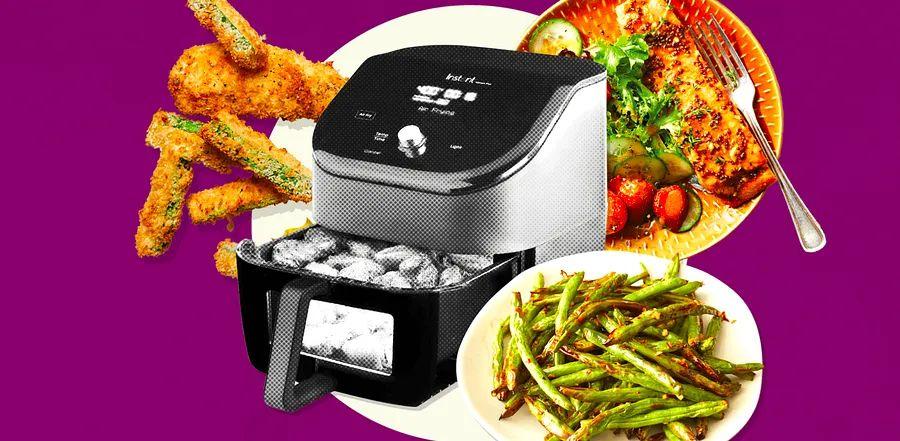Is Air Fryer Cooking Truly Healthy? Experts Share Their Insights and Opinions.

In March 2021, after a year of cooking during the pandemic, Jackie Alpers decided to invest in an air fryer.
"I realized I had been indulging in crispy foods a little too often, and it was becoming an issue if I didn’t reduce the oil," explains Alpers, a food photographer and author.
Alpers is among the 25 million individuals who bought air fryers in 2020 and 2021, according to NPD analysts. Her goal—cooking with less oil—aligns with the marketing message of many air fryer brands, which claim their products can create the flavor of fried foods without the mess and health risks of deep frying.
However, "healthy" is a subjective concept, and whether air fryers are truly a shortcut to better health is more nuanced than the promotional terms like "guilt-free" might suggest.
Understanding How Air Fryers Operate
So, how do air fryers actually function? These countertop devices work by circulating hot air rapidly around food inside a closed basket or chamber. As the temperature inside the chamber reaches 285-330°F, the outer layer of the food crisps and browns, mimicking the texture of fried foods.
"It’s not exactly frying," says Kaumudi Marathe, senior editor at America's Test Kitchen and author of an upcoming healthy air fryer cookbook. "It’s cooking using convection heat within a sealed space."
The Role of Fats in Frying
Using an air fryer instead of deep frying has its benefits, but it's not just about the amount of oil used, according to Ariane Resnick, CNC, a private chef and author. "Deep-fried foods are high in fat, and because the oils used are often low quality, they typically contain inflammatory omega-6 fats that can lead to health issues," Resnick explains.
Air-fried foods generally contain less added fat, and you can select your oil more thoughtfully.
Avocado oil contains what dietitians refer to as "healthy fats," and has a high smoke point ideal for frying. "However, avocado oil is quite expensive," says Beth Lipton, a writer and recipe developer. "The idea of deep-frying in avocado oil and using up half the bottle for one dish can feel excessive." Most air fryer recipes, though, only require a small amount of oil, making it a potentially more affordable choice.
Air frying is gentler on the oil you use, too, which helps prevent oxidation, explains Resnick. Research suggests that oxidized oils may contribute to inflammation, free radical production, and damage to brain cells, among other harmful effects.
It may seem obvious, but it's important to remember that what you cook in the air fryer is just as crucial.
"Cooking pre-breaded or pre-fried frozen foods, like chicken nuggets or mozzarella sticks, in an air fryer isn't a healthy choice," warns Alpers. Marathe agrees, adding that the air fryer is an excellent tool for preparing well-seasoned vegetables and lean proteins with little to no added fat.
Can Air Frying Actually Reduce the Nutritional Value of Foods?
Certain nutrient-rich foods may actually lose some of their benefits when air fried.
"Air frying fish decreases its omega-3 content while increasing harmful cholesterol levels," explains Resnick, referencing a 2017 study by the Institute of Food Technologists. "You can counteract this by adding fresh herbs for their antioxidant benefits, but it’s important to incorporate more omega-3 rich foods to make up for the loss."
The Takeaway
Rather than seeing the air fryer as a shortcut to perfect health, Resnick advises cooks to consider the bigger picture of their overall diet. "Fat isn't the enemy," she says. "Many vitamins in fruits and vegetables, like vitamin A, are fat-soluble, so they need to be consumed with fat to be absorbed properly. Cutting out an entire macronutrient can lead to problems, so don’t rely solely on the air fryer for every meal."

1

2

3

4

5
Evaluation :
5/5